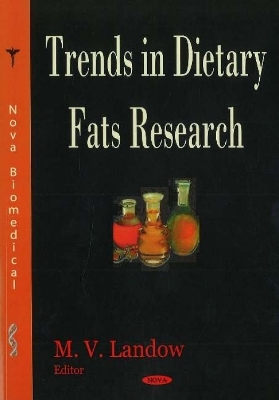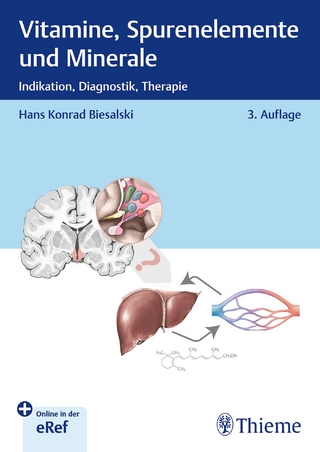
Trends in Dietary Fats Research
Nova Science Publishers Inc (Verlag)
978-1-59454-336-4 (ISBN)
Fats have important functions in the body. Fats and oils are also called lipids. Fats are the most concentrated source of food energy. Per gram, fats have over twice as many calories as protein or carbohydrates. Fats supply nine calories per gram, whereas carbohydrates (sugars and starches) and protein supply four calories per gram. Our bodies store excess dietary fats in fat cells to meet later energy needs. Excess dietary carbohydrates and protein also are converted into fat by our bodies and stored for later use. In addition to supplying energy, fats have several important functions. Fats give foods their characteristic flavours. Fats help provide a feeling of satiety, or fullness. Dietary fats carry the fat-soluble vitamins A, D, E, and K. Fats are also a source of the essential fatty acids, linoleic acid and linolenic acid. Because the body cannot make these essential fatty acids, they must be provided in the diet. There are three types of natural fats found in foods. These are monounsaturated, polyunsaturated, and saturated fats. Most foods contain all three fats in different amounts. Another type of fat is trans fats. These fats are formed when vegetable oils are processed into margarine or shortening through a process called hydrogenation. This new book brings together new research in this sometimes confusing but critical area of research.
Preface. Dietary Carbohydrates: Digestion and Absorption; Fatty Acids and Immune System Functions: from Biological Properties to Clinical Consequences; Biochemical and Physiological Effects of Dietary Trans Fatty Acids; Benefits and Sources of Docosahexaenoic Acid (DHA) in Human Milk; Effects of | -3 Fatty Acids on Human Renal Diseases; Omega-3 Fatty Acids as an Adjuvant to Cancer Therapy; Structure-Activity Relationship and Mechanism for Growth Inhibition Induced by Omega-3 Polyunsaturated Fatty Acids in Human Cancer Cells; Omega-3 Fatty Acids and Airway Hyperresponsiveness in Asthma; Comparison of the Effects of Vitamin C, Omega 3 Fatty Acids and Simultanous Administration of them on Lipoproteins, apo A-I, apo B, and Malondialdehyde in Hyperlipidemic Patients; Triglyceride Metabolism in the Postprandial State in Health and in Insulin Resistance; Social Psychological Perspectives in Dietary Fat Modification: Recommendations for Nutrition Education and Counseling; Influence on Eating Behaviors: A Selected Literature Review and Meta-Analysis; How Do Consumers Interpret Claims About Fat Content in Foods?; Introduction; Index.
| Erscheint lt. Verlag | 18.7.2005 |
|---|---|
| Zusatzinfo | Illustrations, unspecified |
| Verlagsort | New York |
| Sprache | englisch |
| Maße | 260 x 180 mm |
| Gewicht | 608 g |
| Themenwelt | Medizin / Pharmazie ► Gesundheitsfachberufe ► Diätassistenz / Ernährungsberatung |
| ISBN-10 | 1-59454-336-4 / 1594543364 |
| ISBN-13 | 978-1-59454-336-4 / 9781594543364 |
| Zustand | Neuware |
| Haben Sie eine Frage zum Produkt? |
aus dem Bereich


